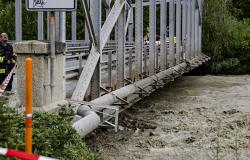The Committee of Parliamentarians on National Security and Intelligence has thus made its contribution to the shaky structure of foreign interference. This committee, created by the Trudeau government, brings together MPs and senators from all parties who have received a security clearance allowing them to have access to secret intelligence. The Committee examined interference in our democratic processes from 2018 to the present.
The Committee is the third entity to do this type of analysis, after NSIRA last week (the independent organization that monitors our intelligence agencies) and Judge Hogue’s Public Inquiry last month. First remark: all the concrete incidents having been detailed by Judge Hogue are also reported by the Committee. Whether commission of inquiry or not, the existing bodies made it possible to report on it.
The new report is devastating because it claims to have seen “disturbing information that some parliamentarians are, according to intelligence agencies, half-willing or willing participants in the interference efforts of foreign states.”
We are talking about:
—“communicate frequently with foreign missions” to gain support from their respective diaspora during an election;
—accepting “knowingly or through willful ignorance” funds from foreign missions whose provenance has been disguised;
—providing diplomats with “privileged information on the work or opinions of other parliamentarians” in the knowledge that it will be used to try to change those opinions;
—“providing information learned in confidence from the government to a foreign intelligence agent.”
Yes, it sends shivers down your spine. We are left wondering who these “useful idiots” are, as the Bloc leader called them. Unless…
You will have noticed that the Committee takes care to write “according to the intelligence services”. However, what did OSSNR tell us last week in its own report? That intelligence officers and civil servants disagree on the definition of interference. Certain practices considered by CSIS to be interference are seen by the Canadian apparatus as common diplomatic practices.
Before handing over elected officials considered at fault to popular vindictiveness (the leader of the NDP, Jagmeet Singh, is even talking about expelling them from Parliament), we must therefore keep in mind that this analysis is perhaps not unanimous.
The Minister of Public Safety, Dominic LeBlanc, also declared that there are “elements of the report with which the government respectfully disagrees. The government is concerned about the interpretation of certain intelligence reports.
And don’t think that the Trudeau government is protecting its back in this way. Among the 11 candidates who may have been wet in the 2019 election, seven are Liberal and four are Conservative. The Committee maintains, and this is new, that the Conservative leadership races have also been targeted, by India for one of them. In short, it affects everyone.
Impossible pursuits
If these possible traitors are not brought to justice, it is because of the sacrosanct secrecy. Intelligence agencies do not like to display their information publicly, in order to protect their sources and methods. However, in Canada, trials are public. The Committee says it has noted “several cases” where prosecutions have not been initiated because we wanted to protect the information by not sharing it with the police.
This limits government action. When Justin Trudeau was warned in 2019 that his candidate Han Dong may have received aid from China, he was told by CSIS not to discuss it with him. How can we punish if we cannot provide justification? The opposition has no problem criticizing the Prime Minister for not having sanctioned anyone, he who saw an unredacted version of the report and therefore knows the names of the elected officials who may be at fault. If Pierre Poilievre consulted this full report, he would find himself similarly handcuffed. Is this the reason why he refuses, unlike Jagmeet Singh, to read it?
The difficulty of using intelligence to sanction is far from new. In 2009, this is what allowed the now famous Adil Charkaoui to avoid expulsion. The security certificate against him was revoked because CSIS did not want to disclose its evidence. Mr. Charkaoui was able to obtain his Canadian citizenship and became this controversial Muslim preacher who recently again gave a sermon against Israel that some considered hateful.
Another example. The head of CSIS from 1994 to 2004, Ward Elcock, said this week that he remembered at least two deputies who helped foreign states and who were not prosecuted for the same reason.
The Committee writes in its report that the new foreign interference offenses created by Bill C-70 “import[ont] little” if we do not also establish a mechanism to protect secret information in the context of public trials. In other countries, this mechanism takes the form of closed sessions, explains Michelle Tessier, a former high-ranking CSIS officer.
Unfortunately, C-70 does not provide anything in this regard and our elected officials still decided to rush its adoption. The study will end on Monday, after a single week of hearings.
This is what happens when you politicize an issue too much. Our elected officials have only one concern: to appear to be acting in the eyes of the electorate. Everything becomes a question of image and too bad if we miss the real solutions. The NDP, which initially opposed this haste, finally gave in.
Times have changed. In 2010, CSIS boss Richard Fadden was criticized rather than praised for declaring that two Ontario ministers were under foreign influence. Stephen Harper did nothing, just as he did nothing the following year when a leak revealed that his parliamentary secretary for Foreign Affairs, Bob Dechert, was having an affair with a “journalist” from the Xinhua network reputed to harbor spies Chinese. The unmasked “journalist” returned to China shortly after.
As Ms. Tessier explains, we lost our innocence in 2016, with Russian interference in the American elections. It is time that we stop stupidly analyzing this issue through a partisan lens if we want to provide the necessary answers.






